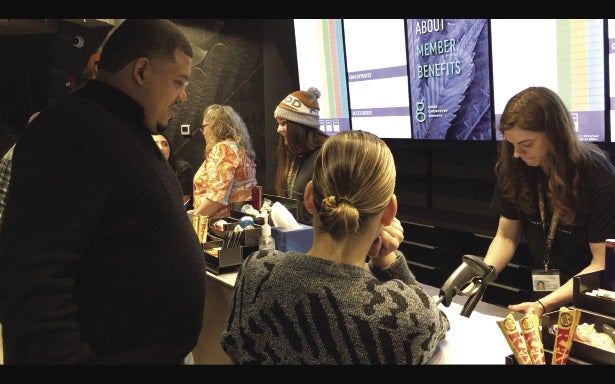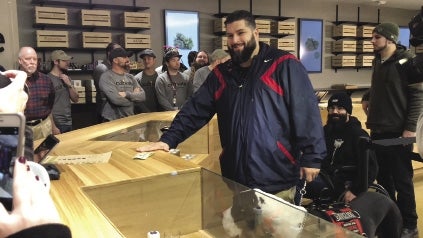As the CCC works through its backlog, more marijuana stores – both recreational and medical – will open statewide, and in Central Massachusetts, in particular.
Get Instant Access to This Article
Subscribe to Worcester Business Journal and get immediate access to all of our subscriber-only content and much more.
- Critical Central Massachusetts business news updated daily.
- Immediate access to all subscriber-only content on our website.
- Bi-weekly print or digital editions of our award-winning publication.
- Special bonus issues like the WBJ Book of Lists.
- Exclusive ticket prize draws for our in-person events.
Click here to purchase a paywall bypass link for this article.
Massachusetts voters legalized medical marijuana in 2012. That was followed by a 2016 vote making recreational cannabis legal in the state.
But the process of getting marijuana retail stores in the state was much more complicated. The state’s first recreational marijuana stores didn’t open until November 2018, and Worcester didn’t get its first one until May. In its first full year, recreational marijuana was expected to generate $1 billion in sales. Instead, the industry has made $394 million in revenue in the 14 months since the first stores opened.
The industry will grow, then contract.
Of the 608 license applications from companies who want to grow or sell marijuana in the Bay State, 194 are from Central Massachusetts, according to the Cannabis Control Commission, the state regulating body. Of that number, 30 shops have opened from Ayer to Worcester.
As the CCC works through the backlog, more marijuana stores – both recreational and medical – will open statewide, and in Central Massachusetts, in particular.
Yet, as more open, it’s likely some will not survive. Does Worcester have enough pot buyers to keep two dozen businesses in the black? Can Uxbridge sustain 15 pot retailers? Is there a need for 19 dispensaries in Fitchburg?
The market will decide.
Timothy Murray, president and CEO of the Worcester Regional Chamber of Commerce, may have it right when he told WBJ only the strong will survive.
“It’s like any other industry, some will succeed and others might have challenges,” Murray said.
The industry will get more diverse.

When voters approved the 2016 recreational marijuana ballot initiative, it had language saying the newly legal industry would disproportionately benefit communities who were hurt by the War on Drugs, particularly people of color.
Yet, because of the cost and regulatory barriers to opening a new cannabis business, nearly all the operators in the state are white males, making up in January 85% of marijuana companies. Even among workers, 73% were white.
The CCC continues to prioritize industry diversity with various programs and is pushing for the aspects of the industry with lower cost barriers to entry – like transportation and delivery – to feature more applicants of color.
As the industry matures, these various diversity programs and efforts will pay off.
Prices will come down.

The slow rollout of the industry – coupled with the high cost of entry – has created high prices for marijuana, with an eighth ounce of marijuana typically selling in the $50-$60 range, which is about double what it sells for in other states with legal recreational cannabis. These high prices have helped keep the black market viable as the industry legalizes, as the street price is significantly lower than a dispensary price.
Yet, as more legal cannabis stores come online in 2020, competition will bring the dispensary prices down.

